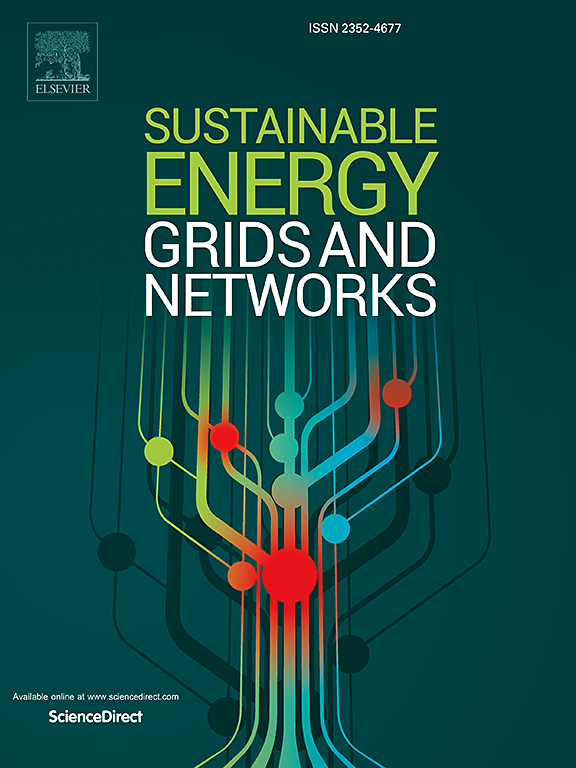Optimal energy scheduling for multi-energy network based on incentive integrated demand response
IF 5.6
2区 工程技术
Q2 ENERGY & FUELS
引用次数: 0
Abstract
In recent years, the rapid expansion of data center construction has led to rising energy demand, forming new energy-intensive industrial clusters supported by integrated energy systems (IES). This study investigates the use of integrated demand response (IDR) to manage the complex coordination of electricity, heating, and cooling in such systems. A framework is proposed that connects data centers with surrounding residential and commercial buildings through an IES, enabling joint scheduling of multiple energy flows. A two-stage bilevel optimization model is developed to capture the interaction between the integrated energy service provider (IESP) and users. The upper level minimizes total operating costs, while the lower level maximizes user benefits under comfort constraints. Simulation results show that the proposed IDR strategy effectively balances multi-energy demands, enables rapid load adjustments, smooths the energy supply curve, and reduces dependence on costly peak-hour energy. The strategy achieves an average daily cost reduction of approximately 3.25 %. Compared with conventional approaches focused only on electricity price response, this work presents a generalized and scalable IDR framework. It incorporates energy conversion relationships, user-side flexibility, and incentive design, making it more applicable to complex, multi-energy environments. The results highlight the potential of this approach to enhance economic efficiency and operational reliability in future energy-intensive clusters.
基于激励综合需求响应的多能源网络最优能源调度
近年来,数据中心建设的快速扩张导致能源需求不断上升,形成了以综合能源系统(IES)为支撑的新型能源密集型产业集群。本研究探讨了使用综合需求响应(IDR)来管理此类系统中电力、供暖和制冷的复杂协调。提出了一种通过IES将数据中心与周围的住宅和商业建筑连接起来的框架,实现多种能量流的联合调度。建立了一个两阶段双层优化模型,以捕获综合能源服务提供商(IESP)与用户之间的交互。上层最大限度地减少总运营成本,而下层在舒适约束下最大限度地提高用户效益。仿真结果表明,所提出的IDR策略能够有效地平衡多种能源需求,实现负荷快速调整,平滑能源供应曲线,降低对昂贵的高峰时段能源的依赖。该策略实现了平均每日成本降低约3.25 %。与仅关注电价响应的传统方法相比,本研究提出了一个通用的、可扩展的IDR框架。它结合了能量转换关系、用户侧灵活性和激励设计,使其更适用于复杂的多能源环境。研究结果强调了这种方法在未来能源密集型集群中提高经济效率和运行可靠性的潜力。
本文章由计算机程序翻译,如有差异,请以英文原文为准。
求助全文
约1分钟内获得全文
求助全文
来源期刊

Sustainable Energy Grids & Networks
Energy-Energy Engineering and Power Technology
CiteScore
7.90
自引率
13.00%
发文量
206
审稿时长
49 days
期刊介绍:
Sustainable Energy, Grids and Networks (SEGAN)is an international peer-reviewed publication for theoretical and applied research dealing with energy, information grids and power networks, including smart grids from super to micro grid scales. SEGAN welcomes papers describing fundamental advances in mathematical, statistical or computational methods with application to power and energy systems, as well as papers on applications, computation and modeling in the areas of electrical and energy systems with coupled information and communication technologies.
 求助内容:
求助内容: 应助结果提醒方式:
应助结果提醒方式:


